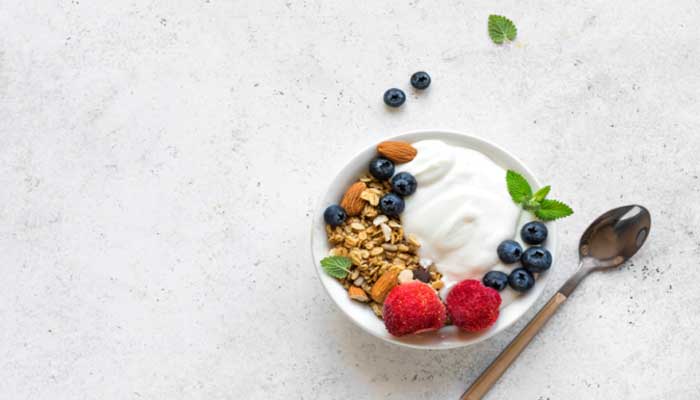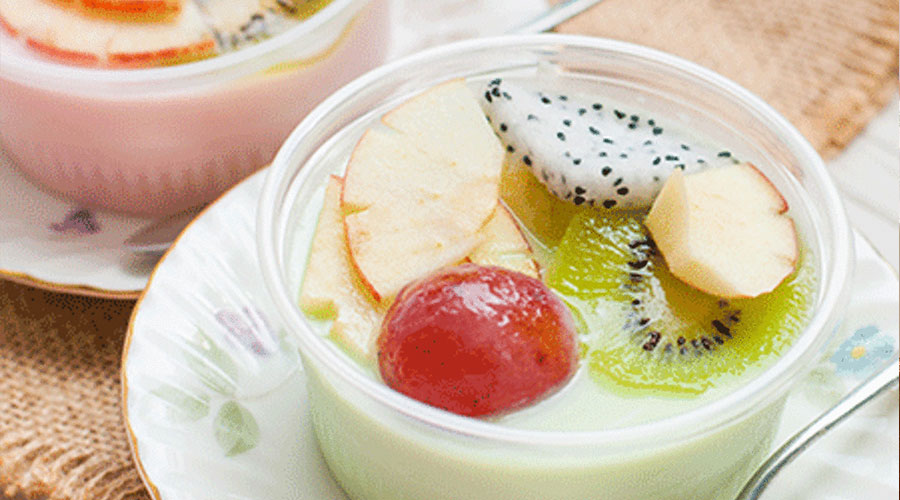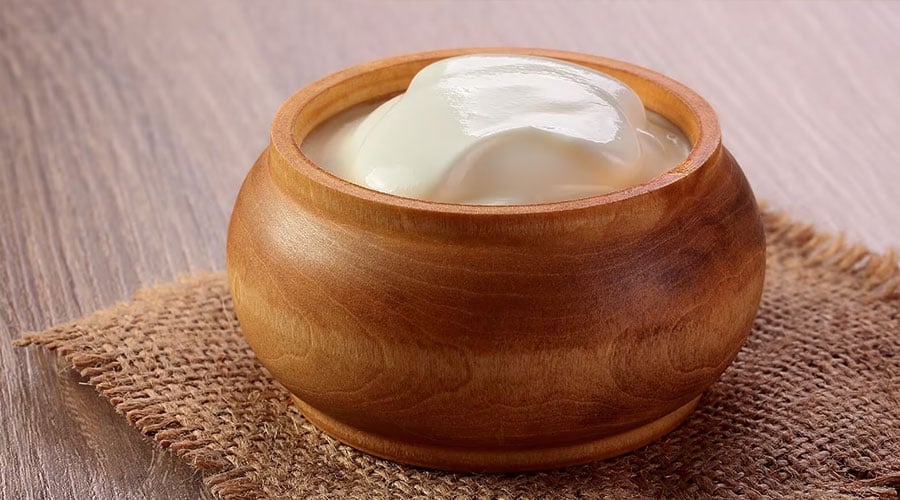Home / Food
Is eating curd at night beneficial or not?
Debunk food myths about eating curd at night and enjoy a healthy lifestyle

Curd holds numerous health benefits because of its cooling properties and carrying various good bacteria.
Many residents of subcontinent homes make curd every night before going to bed. A little amount of yoghurt and warm milk are combined, then left to ferment overnight.
Everyone relishes the fresh curd the following day with bread, rice, pulses, and/or veggies. Curd has a number of health advantages. But is it okay to eat our favourite dahi for dinner? Let's find out!

Discomfort or indigestion
It is acceptable to eat curd at night. However, eating curd late at night may make you feel uncomfortable or indigestion if you have any digestive problems. This is because it is a dairy product that might be challenging to digest at this time of day when your metabolism may also be low. It is also a dairy product that is high in fat and protein.
Excessive mucus production
Curd, according to Ayurveda, can elevate the body's kapha dosha. The body naturally favours the kapha energy at night. This may cause the nasal passages to produce too much mucus. However, the effects can differ from person to person and might not apply to everyone. Curd should not be consumed by those who are susceptible to asthma, coughing, or colds.
What is the best time to have curd?
The optimum time to eat curd is in the morning or afternoon with lunch rather than having it at evening. At this time of day, curd is simpler to digest. You can top it with fruits like mango and banana and enjoy it as a morning snack.

How to get the maximum benefits of curd?
Consuming curd can aid in digestion improvement, immune boosting, and gut health promotion. Additionally rich in calcium and protein, curd promotes the development of bones and muscles. Additionally, it will support healthy skin and hair. To benefit the most from this rich source of probiotics, it is advisable to eat freshly made curd.
If you can't make it at home, consider buying dahi that is unflavoured or packed from a reputable local dairy store. Yoghurt with flavours may have sugar that has been added and artificial flavours.
Who should avoid curd?
Everyone benefits generally from curd. If you are lactose intolerant or sensitive to dairy products, you should stay away from curd. Consuming curd in moderation is advised for those with kidney issues or excessive cholesterol levels. To make sure you don't ingest it more than is advised, it is essential to speak with a doctor or nutritionist.